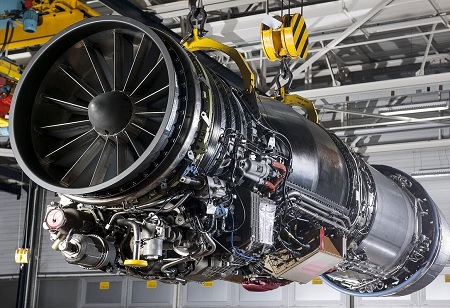
India and France Reach Milestone Agreement on Jet Engines

 India's Ambassador to France, Jawed Ashraf, emphasized a significant advancement in defense and aerospace collaboration between India and France during President Emmanuel Macron's visit to India. Safran, a manufacturer of fighter jet engines, has agreed to a complete technology transfer to India throughout their joint venture. This move holds significance as it could enhance India's self-reliance in defense technology and reinforce the strategic partnership between the two nations.
India's Ambassador to France, Jawed Ashraf, emphasized a significant advancement in defense and aerospace collaboration between India and France during President Emmanuel Macron's visit to India. Safran, a manufacturer of fighter jet engines, has agreed to a complete technology transfer to India throughout their joint venture. This move holds significance as it could enhance India's self-reliance in defense technology and reinforce the strategic partnership between the two nations.
The technology transfer agreement between Safran and India for the Shakti jet engine project is comprehensive, surpassing previous partnerships. Safran commits to transferring all technology, including crucial information in design, development, certification, production phases, and manufacturing methods. This extensive transfer, going beyond conventional approaches, is crucial for developing new jet engines, focusing on design phases and metallurgical considerations.
This technology transfer aligns strategically with India's long-term defense goals and integrates seamlessly with future defense objectives. Meetings between French President Emmanuel Macron and Prime Minister Narendra Modi have strengthened the strategic alignment, emphasizing collaborative development and production ecosystems. Examples include joint development of combat aircraft engines and industrial cooperation for heavy-lift helicopters under the Indian Multi-Role Helicopter (IMRH) program.
Designing and producing a jet engine pose challenges due to high temperatures and complex metallurgical aspects. Thermal control is vital, requiring materials and coatings that withstand temperatures over 1,800 degrees Celsius. Superalloys with intricate metallurgical aspects, advanced fabrication processes for complex forms, and precise production methods like blisk fabrication add to the complexities. Challenges also extend to materials' endurance, aerodynamic designs, efficient cooling systems, structural analysis, and sophisticated electronic control systems.
The Safran agreement is expected to address these challenges, marking a significant stride for India's technological independence and self-sufficiency. By gaining expertise in design, development, and manufacturing processes, India aims to become a leader in aerospace technology, reducing risks associated with external dependence in critical defense domains. The agreement underscores the strong and diverse relationship between France and India, emphasizing mutual trust and a shared commitment to a secure and technologically advanced future. This partnership exemplifies India's broader foreign policy approach, emphasizing the importance of developing various global alliances and securing strategic independence through multilateral cooperation in defense.